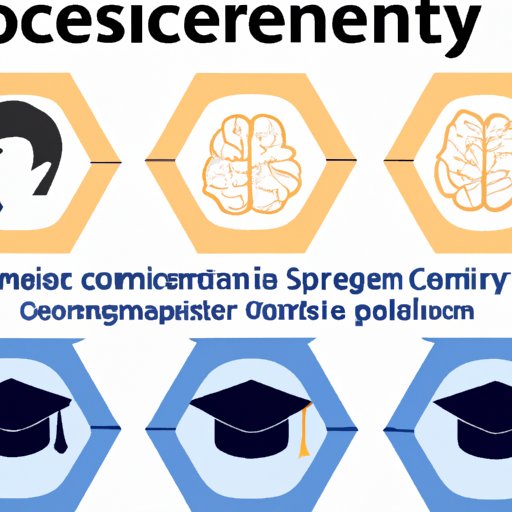Introduction
Cognitive science is an interdisciplinary field that seeks to understand how humans think, learn, remember, and use language. It combines elements from psychology, neuroscience, computer science, linguistics, philosophy, and anthropology to explore topics such as artificial intelligence, human-computer interaction, memory, decision-making, and problem-solving. With a cognitive science degree, you can pursue a variety of career paths in research, data analysis, education, healthcare, and technology.

A Guide to Pursuing a Cognitive Science Degree
If you’re interested in studying cognitive science, the first step is to choose a program. Many universities offer cognitive science degrees at both the undergraduate and graduate levels. Some programs are housed within departments of psychology or neuroscience while others are part of an interdisciplinary studies department. When researching programs, be sure to check out what courses are offered and any specializations available.
Once you’ve chosen your program, you’ll need to apply and meet any admissions requirements. Generally, these include submitting transcripts, letters of recommendation, and a personal statement. Depending on the school, you may also need to take a standardized test such as the GRE or MCAT.
Once accepted, you’ll begin taking courses. These vary depending on the program, but some common courses include cognitive psychology, computational modeling, artificial intelligence, and linguistics. You’ll also likely take courses in mathematics, statistics, and computer science. Many programs also require a research project or internship.
The Benefits of Studying Cognitive Science
Studying cognitive science has many benefits. In addition to gaining knowledge about how the mind works, you’ll develop skills that can be applied to a variety of careers. These include analytical thinking, problem-solving, critical thinking, communication, and data analysis. You’ll also gain experience with research methods and working with technology.
Cognitive science majors have access to a wide range of career opportunities. They can work in research, data analysis, education, healthcare, and technology. According to a recent study by the National Science Foundation, cognitive science majors earn an average of $66,000 annually upon graduation. This salary increases to $80,000 after five years of experience and $100,000 after ten years.

Career Paths for Cognitive Science Majors
Cognitive science majors can pursue a variety of career paths. Those interested in research can work in labs conducting experiments and analyzing data. For those who prefer data analysis, there are opportunities in industries such as finance, marketing, and healthcare. Education is another option. Cognitive science majors often become teachers and professors, helping to educate the next generation of students.
Healthcare is another popular career path for cognitive science majors. They can work in hospitals, clinics, or private practices, using their knowledge to diagnose and treat patients. Technology is yet another option. Cognitive science majors can work in software engineering, developing applications and websites that optimize user experience.

Understanding the Core Concepts of Cognitive Science
To be successful in cognitive science, it’s important to understand the core concepts. These include artificial intelligence, human-computer interaction, psychology, neuroscience, and linguistics. Artificial intelligence refers to machines that can think and act like humans. Human-computer interaction involves designing interfaces that enable people to interact with computers. Psychology examines mental processes such as perception, learning, and memory.
Neuroscience is the study of the brain and nervous system. It looks at how neurons communicate and how this affects behavior. Linguistics is the study of language, including its structure, meaning, and usage. Understanding these concepts is essential for anyone interested in pursuing a career in cognitive science.
Conclusion
Cognitive science is an interdisciplinary field that combines elements from psychology, neuroscience, computer science, linguistics, philosophy, and anthropology. With a cognitive science degree, you can pursue a variety of career paths in research, data analysis, education, healthcare, and technology. To be successful in this field, it’s important to understand the core concepts of artificial intelligence, human-computer interaction, psychology, neuroscience, and linguistics. If you’re interested in studying cognitive science, research programs, understand the coursework, and explore the career opportunities.
Pursuing a degree in cognitive science can open up a world of possibilities. With hard work and dedication, you can make a difference in the fields of research, data analysis, education, healthcare, and technology. So if you’re looking for a rewarding career, consider exploring the cognitive science major.
(Note: Is this article not meeting your expectations? Do you have knowledge or insights to share? Unlock new opportunities and expand your reach by joining our authors team. Click Registration to join us and share your expertise with our readers.)
